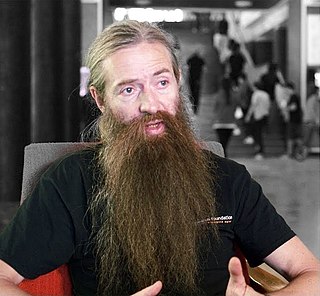Top 35 Quotes & Sayings by Aubrey de Grey
Explore popular quotes and sayings by an English author Aubrey de Grey.
Last updated on November 22, 2024.
Celebrating the future is about celebrating a better world: a world in which everyone's life is easier and their health is maintained longer. It’ll be a life where there’s more time for leisure - for enriching each other’s lives rather than just running to stand still. In other words, more holiday time! So a holiday is absolutely the appropriate way to help us focus on it and make it a reality soon.



















